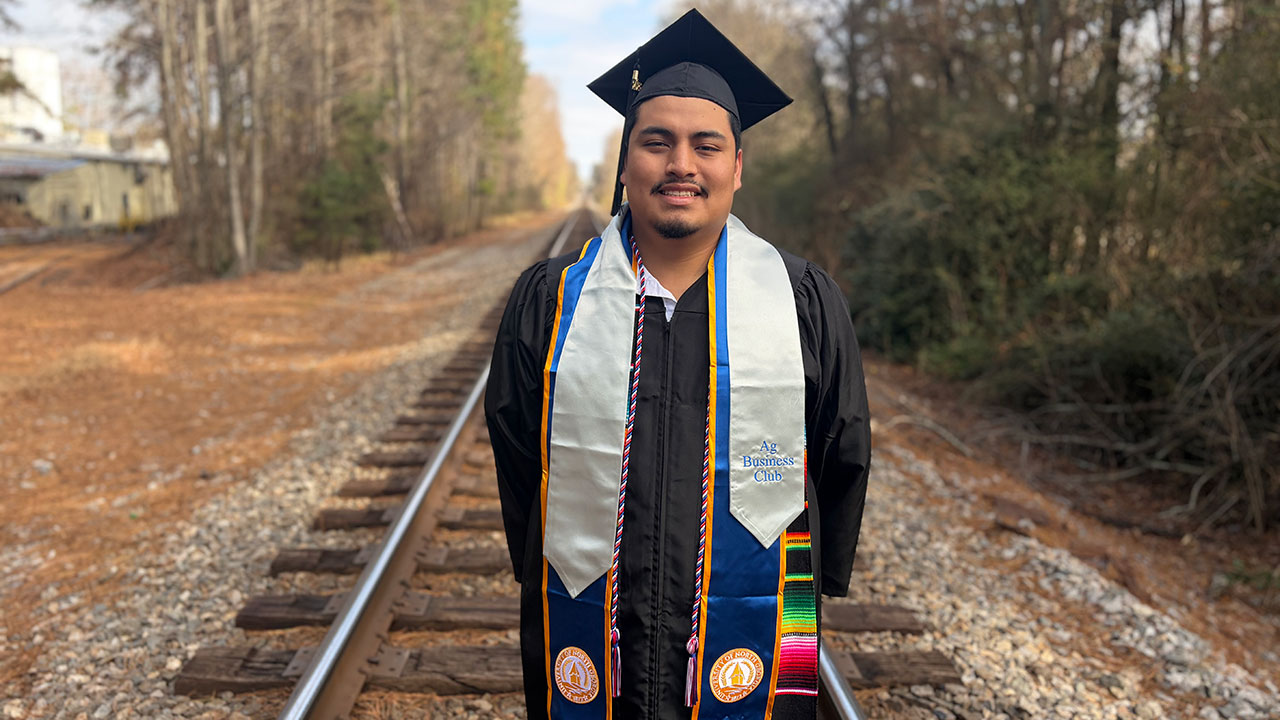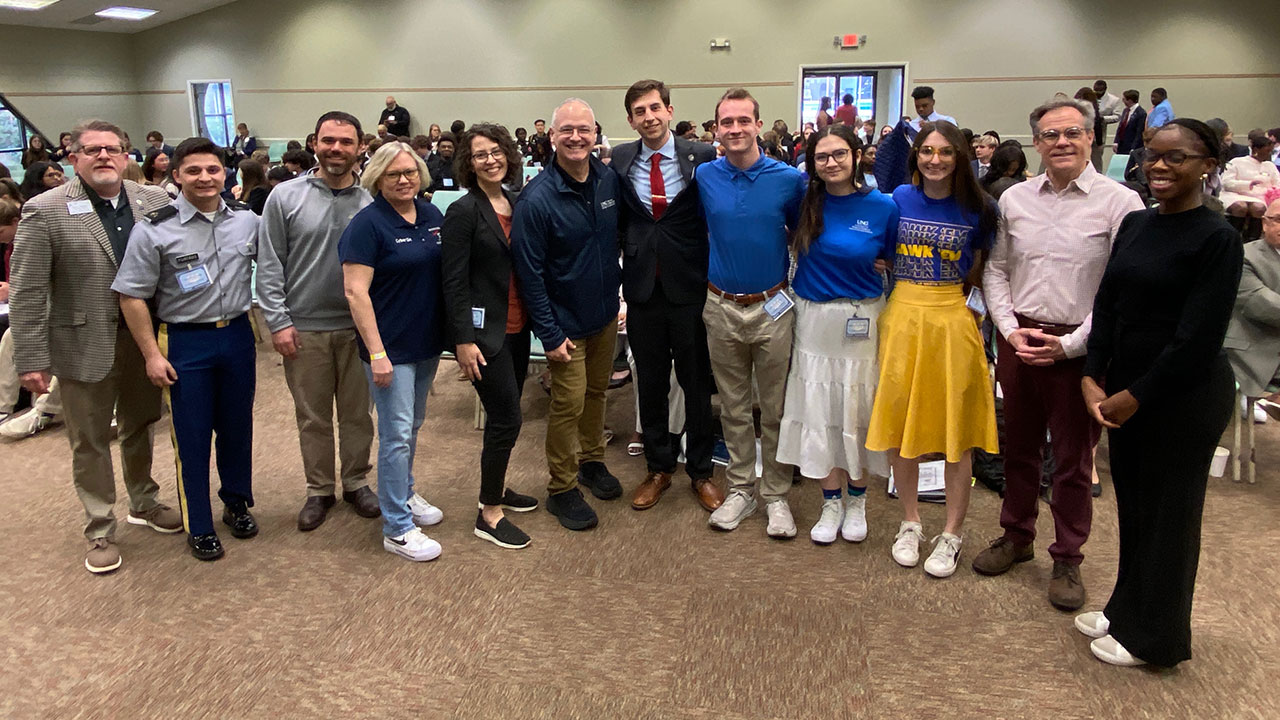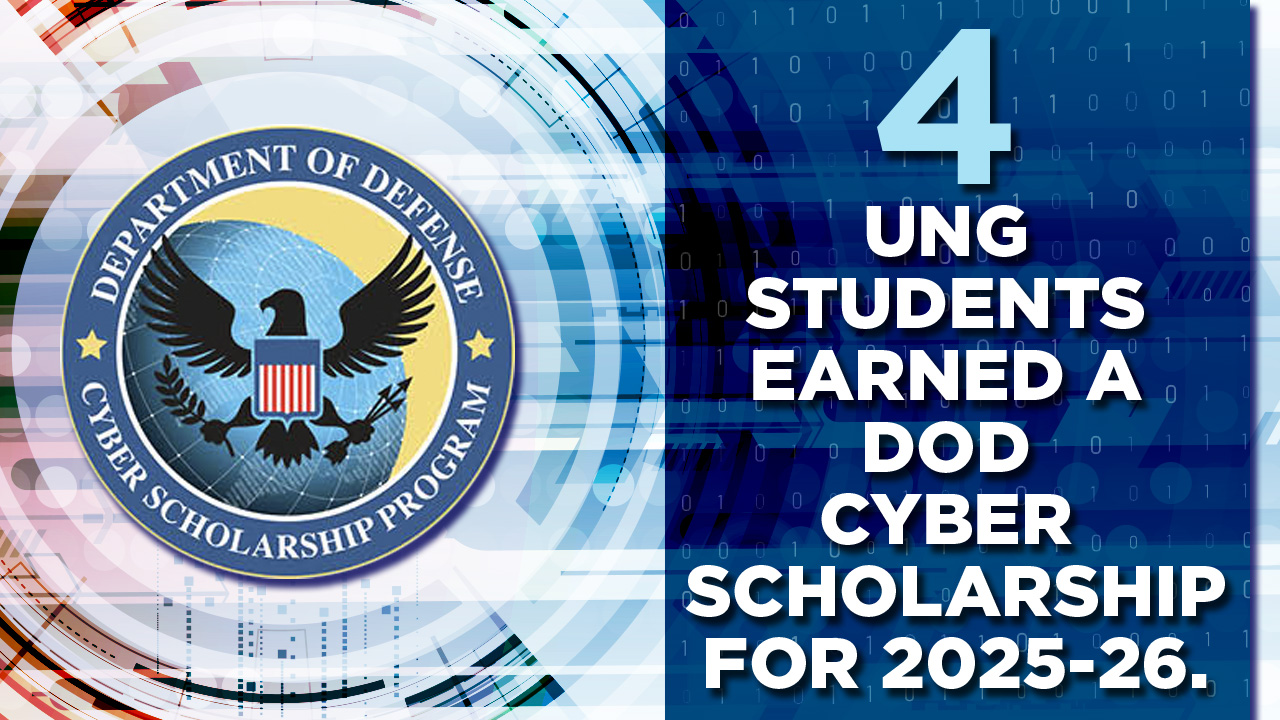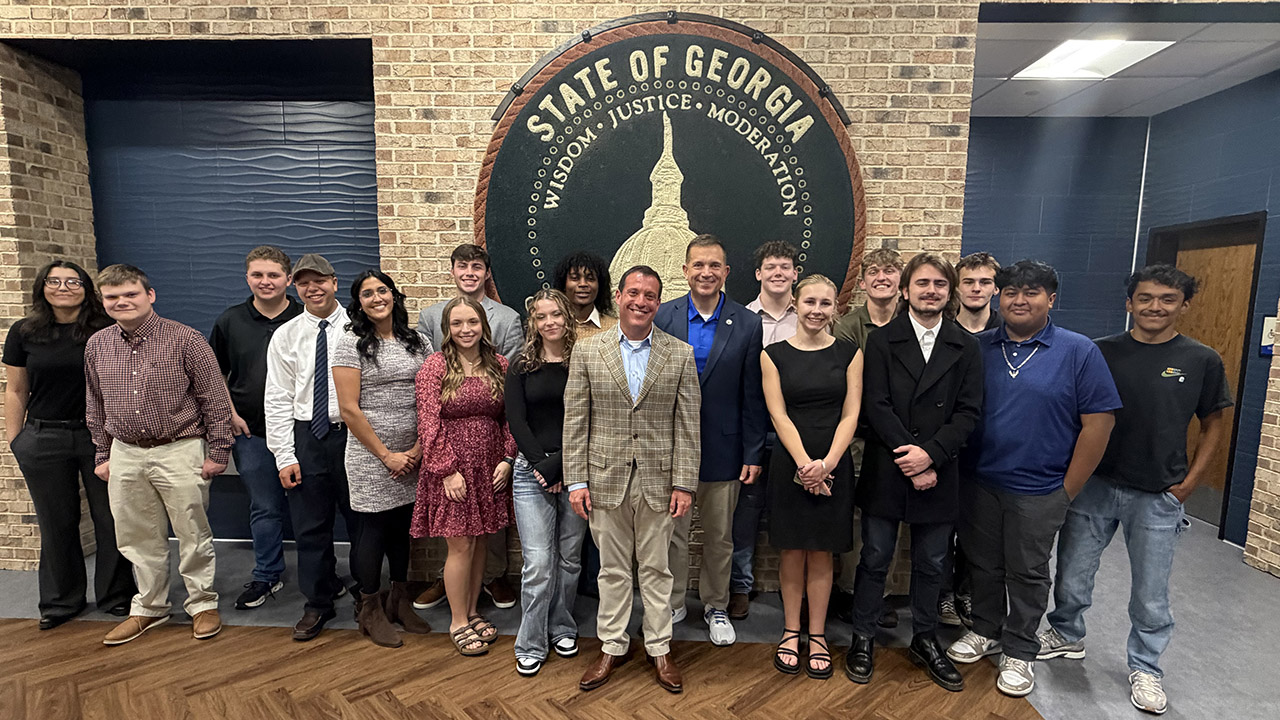Cyber students excel in research, contests

University of North Georgia (UNG) cybersecurity students excelled in competitions this spring and in having their research presented at conferences.
The students took third place overall at the National Cyber Exercise (NCX) hosted by the National Security Agency (NSA) at the Maritime Conference Center near Baltimore, Maryland. UNG was the top in-person team at the event with the U.S. Military Academy at West Point and the U.S. Air Force Academy, the highest finishers, participating remotely.
UNG beat out the U.S. Coast Guard Academy, the U.S. Naval Academy, and the senior military colleges, including Norwich University, Texas A&M University, The Citadel, Virginia Military Institute, and Virginia Tech.
UNG's Elite Team placed second overall in the final Cyber Combat Exercise.
Cadet Matthew Perrino, a senior from Woodstock, Georgia, pursuing a degree in cybersecurity, was grateful to see the hard work of his group pay off at NCX. It reinforced the need for teamwork in the profession.
"Leading side by side is the best way to lead in cyber. You can't just tell people what to do," Perrino said. "You have to go in there and help them and work on projects together."
Paul Kim, a senior from Suwanee, Georgia, pursuing a degree in cybersecurity, also enjoyed the communal aspect of the competition and the way it pushed him out of his comfort zone.
"Don't prevent yourself from becoming better. People are too scared to fail or break boundaries that they feel confined to," Kim said. "I have realized I could reach out to the Institute for Cyber Operations and others."
UNG’s 21-student roster rotated in and out across three teams in four half-day exercises, capped off by UNG's NCX Elite Team that finished second in the Cyber Combat Exercise. That Elite Team included Kim, Sawyer Shepherd, Tyler Vaughan, Wolf Helm, and James Booker.
UNG students also had their research reach wide audiences at major conferences.
Cooper Warrington, a May graduate with a degree in cybersecurity, won the Best Application of Theory Award at the Northeast Decision Sciences Institute, held in Cambridge, Massachusetts. Dr. Tamirat Abegaz, associate professor of computer science, presented Warrington's paper, "A Comparative Analysis of ChatGPT, Bard, Snapchat, Hugging, and Perplexity on Unintentional Biases," on his behalf.
"After being nervous for a whole semester, it felt really good to win the award," Warrington, a Flowery Branch, Georgia, resident, said. "This experience has helped my confidence."
Abegaz also presented student Douglas Sausser's paper, "Exploring Evasion Attacks & Adversarial Defenses," at the conference.

Students Andrew Clements, who is pursuing a degree in cybersecurity, and Tyler Lurie, who is pursuing a Master of Science in computer science, each presented at International Academy of Business Disciplines Conference in Las Vegas, Nevada, in a session chaired by Dr. Jason Porter, UNG associate professor of computer science.
Clements presented with Abegaz and Dr. Bryson Payne, professor of computer science and coordinator of student cyber programs, on "Anomaly Detection: Distinguishing AI-Generated Work from Student-Created Submissions." Lurie presented with Payne on "The Weaknesses of Multi-Factor Authentication: Why a New Approach to Account Security Is Needed."
Zachary Simmons, a senior from Stockbridge, Georgia, pursuing a degree in cybersecurity, was one of 15 UNG students to earn scholarships for SANS Institute cybersecurity training through their strong finishes in the Cyber FastTrack competition. He already has two SANS cyber certifications and looks forward to gaining more through the scholarship. His combination of a strong Cyber FastTrack finish and already having some certifications earned him scholar with honors status, a distinction also reached by Kim and Austin Sanders.
"The SANS courses help you learn so much," Simmons said.
Payne pointed to the immense value professionally and monetarily of the SANS cyber training scholarships.
"The great thing about the Cyber FastTrack competition was that it provided our winning scholars with free SANS training and certification vouchers," Payne said. "Our cyber students carry these industry-leading certifications through graduation and into exciting, high-paying careers in government, military and private companies in Georgia and across the country."
UNG is designated by the NSA and the Department of Homeland Security as a National Center of Academic Excellence in Cyber Defense.
The mission of UNG's Institute for Cyber Operations is to develop highly capable cyber professionals and leaders for the private, nonprofit, military, and government sectors. UNG accomplishes this through innovative co-curricular opportunities, interdisciplinary research in emerging threats and solutions, relevant community outreach, and fostering a sustainable ecosystem to support cyber operations education.




